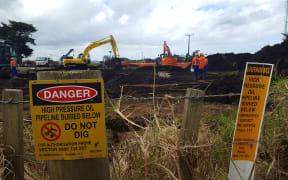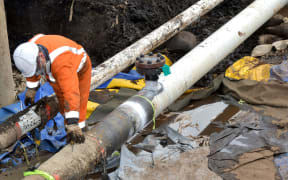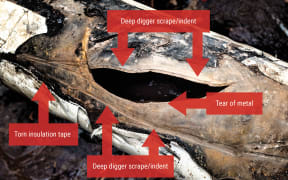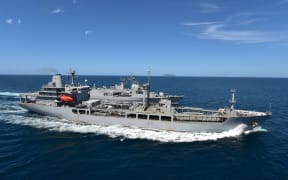Auckland's fuel crisis pales in comparison to problems affecting other airlines and travellers around the world, tourism industry representatives say.
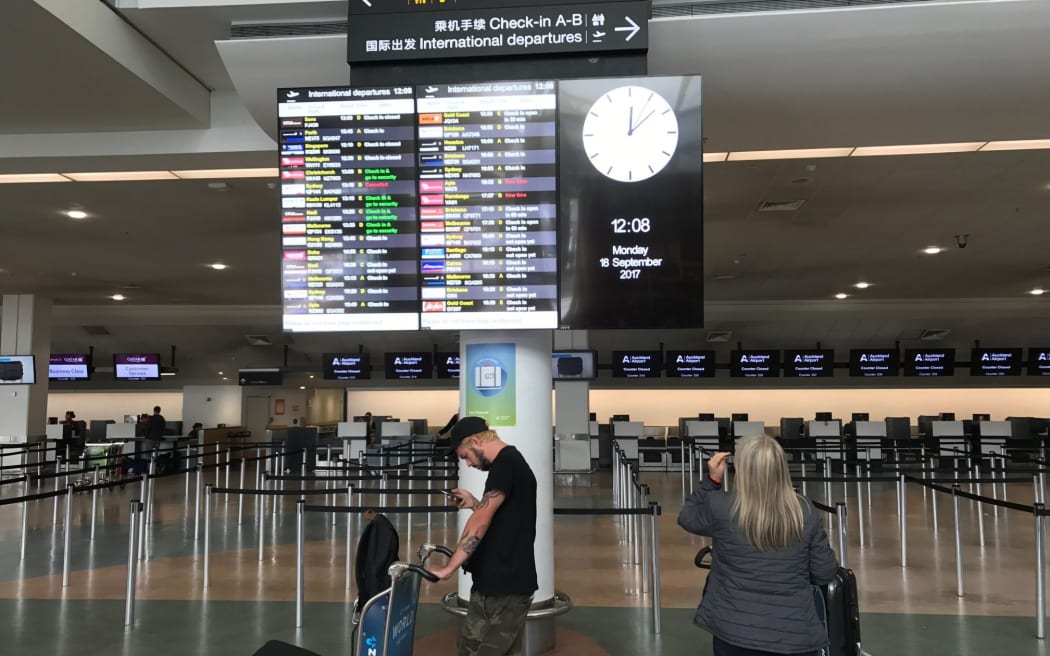
Photo: RNZ / Nita Blake-Persen
Thousands of passengers had their travel plans thrown into disarray over the last two weeks, because airlines were forced to conserve fuel as the pipeline which supplies Auckland Airport was repaired.
Jet fuel restrictions were lifted over the weekend, and Tourism Industry Aotearoa chief executive Chris Roberts said in the scheme of things, the impact of the flight disruptions was relatively minor.
"I would say its had zero impact in terms of reputation," he said.
"It was obviously disruptive to those passengers caught up in it, but the number of people involved here in flight disruptions was about the same as one of the winter storms we had this year."
Mr Roberts said there were far bigger problems more likely to attract international attention than Auckland Airport's fuel shortage.
"Ryanair just cancelled 2000 flights, affecting 315,000 passengers. That's the sort of disruption that does get world attention and that's on a much, much larger scale than what happened here in New Zealand."
Auckland Chamber of Commerce chief executive Michael Barnett thought Auckland would have suffered some damage to its brand.
"Auckland has been positioning itself as a hub and if you're going to do that, you need to have credibility.
"The travelling public need to have confidence that they are going to be able to connect and they are going to be able to travel internationally, so there has been some damage around that."
The issues sparked by the pipeline outage need to be addressed, Mr Barnett said.
"You need to be able to give assurances to the marketplace that things like storage, things like transportation of fuel, that those things have been fixed. To me, I think that can happen and happen quickly."
House of Travel spokesperson Brent Thomas said while a single event like this would not do any long-term reputational damage, fuel storage would be something Auckland Airport would have to look at.
"No doubt other airports around New Zealand will also be assessing their risk factors based on what we have seen in Auckland," he said.
"Obviously we are highly dependent on Auckland Airport for in-bound tourism, which is the second-biggest earner for New Zealand."
But Mr Roberts said it would be passengers who ended up bearing the cost of any decisions to increase fuel storage at Auckland Airport, so that should be considered carefully.
Meanwhile, Air New Zealand did not respond to a request for comment.
And Auckland Airport said it did not have anything to add to its previous comments, made at a press conference last week.

